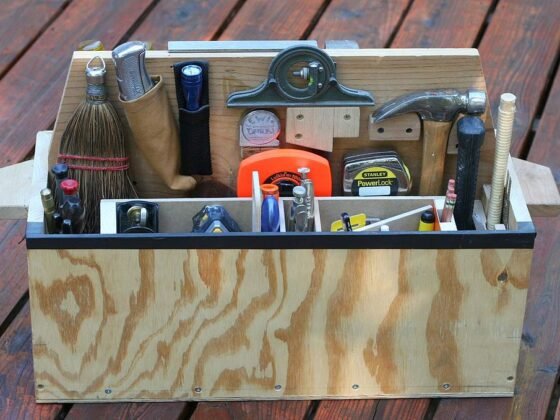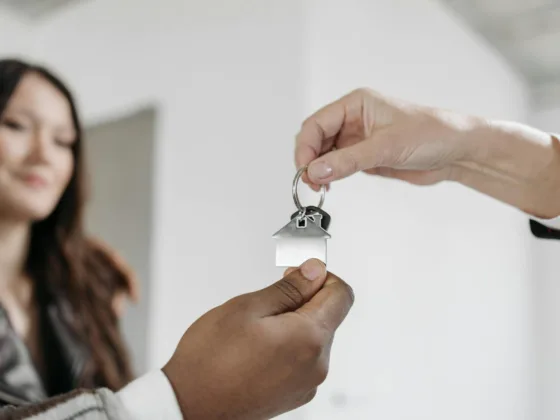Table of Contents Show
Buying a home for the first time? Many people believe that purchasing a property, especially a house, is a sign of adulthood and financial responsibility.
But owning a home is a huge commitment physically, emotionally, and financially. Even today, some homeowners haven’t ensured that their financials are in order.
If you don’t want to hurt your financial goals and keep paying a mortgage until your retirement, you should know what you’re getting into.
Before you consult a buyers agents in Australia, take note of these important do’s and don’ts when buying your new home.

Dos
Keep these things in mind when buying your first home:
Do: Check Your Credit Score
Credit score plays a significant role when securing a mortgage. Before you even start to look at homes, it’s wise to ensure you have a high credit score.
If you’re not sure how strong your credit is, you can get your credit report from reliable credit score estimators online.
If you want to raise your score, make sure you make timely payments on your accounts such as rent, car loan, cell phone, credit card, etc.
Aside from that, if you have debt on multiple credit cards, transfer all of it to a single credit card with the lowest possible interest.
Lastly, ask for a credit limit increase or open a new card and maintain a low balance, which will improve your spending ratio and boost your score.
Do: Get Preapproved for a Home Loan
Preapproval makes closing faster and easier. It also tells sellers that you’re serious and have the capability to buy. This is crucial because you have many competitors for your dream home, which can put you in a stronger bargaining position.
As a first-time buyer, you might get so excited by the prospect of finding a home that you would forget to check how much you can actually afford.
In the pre-approval process, your financial situation will be formally analyzed. Some of the preapproval requirements include your proof of income, any assets you are using for your downpayment and closing costs, and those for reserves.
The mortgage banker or loan officer may also need to look into your credit score.
In the end, the loan officer will provide you an amount that represents how much you can afford to spend on a house and an approval letter that proves that you have the financial capability to purchase your prospective home.
Do: Read Your Mortgage Disclosures
Federal law requires that you get a Loan Estimate Disclosure, a form that tells you about the most important features of your loan.
This includes the interest rate, annual percentage rate, potential adjustments or prepayment penalties, cost of financing over the life of your loan, and the expected loan costs.
Read the forms very carefully, and keep them handy throughout the process of getting a loan.
You’ll want to compare these up-front estimates with the loan’s final costs, which will be shown in the Closing Disclosure.
Do: Find a Buyers Agent
Some people decide to try going through the process alone without considering the importance of having a real estate or buyer’s agent in Australia.
As a first-time homebuyer, consulting from a professional will make your experience far less stressful and help prevent you from making any mistakes.
While the mortgage banker guides you through the home financing process, a real estate or a buyer’s agent will guide you through finding and buying your new home.
They are licensed professionals who specialize in searching, evaluating, and negotiating property purchases on your behalf.
This includes understanding your needs and identifying neighborhoods where you can find the best value.
With a buyers agent, you will be able to find out about homes that match your wish list and tour them easily.
And the best part is that you won’t pay a thing since sellers actually pay their fees, and their commissions are paid out of the home’s purchasing price.
Do: Read About the First Home Loan Deposit Scheme
In October, the Federal Government announced the extension of its First Home Loan Deposit Scheme, designed to help first home buyers enter the market quicker by providing a guarantee on 15 percent of a new home’s value.
Provided that you haven’t purchased any property in Australia previously, aged above 18 years old and single with an annual income of $125,000 per year, or a couple with a combined annual income of less than $200,000, and meet other requirements, you could be eligible to purchase a property with as little as five percent deposit without having to take out Lenders Mortgage Insurance (LMI).
Contact a participating lender directly or go to the National Australian Bank (NAB) to find out more about applying for a Scheme place.
Do: Consider Home’s Resale Value
Like most people, this might not be the last property you will be purchasing. If you want to have more money to put toward a new home after selling the property, building up some equity will help.
To check the potential resale value, you need to consider the home’s location, plans to develop the area, and features like bedrooms, bathrooms, walk-in closets, and garages.
Although there’s no sure-fire way to determine if your prospective home will turn into a gold mine, just keep resale value in mind, and ask your real estate agent the things you need to know as you weigh in your options.
Don’ts
Here are things you need to avoid when buying a home for the first time:
Don’t: Provide Your Social Security Number to Everyone
Be extra cautious when providing your personal data, especially your social security number. While some lenders ask for this information to verify your credit score, most do not, especially if you’re not actually applying and still in the inquiry stage.
Basically, lenders should be able to provide basic data about the loan to you based on the verbal information you provide.
Don’t: Cave into Pressure
If you don’t understand or feel uncomfortable with any document being asked to sign, just don’t. It doesn’t hurt to ask for explanations or clarifications, especially if you’re a first-time buyer.
Never allow your real estate agent, lender, or anyone else who stands to make money from your purchase, pressure you into anything. After all, it’s you who will be living in and paying for that home in the years to come.
Don’t: Let Your Emotions Drive Decisions
Buying your home is always a personal matter. It’s easy to get swept up in emotions as you see yourself living in each home you tour.
You could fall in love with a home too quickly and dismiss every other home you look at or say no to every prospective home you visit because there could be something better out there.
Never let your emotions alone drive your decisions. It’s okay to consult your “gut feeling” about the house but just make sure to consider the financial elements and other factors involved before you come to a decision.
Don’t: Nitpick
If you’re buying an old property, you can’t expect everything to be lovingly maintained. Or, if you’re looking at a newly-built home, there may be some features that need improvement or revamping.
This all depends on your preference. It is ultimately tough to see a home that has everything you need all at once. Don’t let the flaws deter you.
You can always repaint, install new flooring, or hire a landscaper to give the front lawn and backyard a makeover without spending excessively.
Aside from that, a home with a few flaws can be an opportunity to ask the seller if they are willing to lower the price. Instead of deciding to nitpick, discuss things with your real estate agent to determine if your concerns can be subject to price negotiation.
Don’t: Make Big Credit Card Purchases Before Closing
An accepted offer is definitely worth celebrating but don’t overdo it. Your overjoy may drive you into buying a brand-new living room set with your credit card.
Bear in mind that your mortgage lender will take another look at your debt load before you officially close.
If your debt-to-income ratio suddenly spikes, you’ll be questioned about your capacity to make your mortgage payments, and you’ll be denied a mortgage at any time before closing.
When you’re so close to the finish line, play it safe, and refrain. Besides, you should be saving extra funds for emergency situations.
Ready to Buy Your First Home?
While exhilarating, buying your first home can also be intimidating.
Very few first-time buyers have the technical know-how about the housing market, compare mortgage rates, or have read up on mortgage interest rates until it’s time to take the plunge.
If you’re reading this, you’re one step ahead of anyone else who has no idea where to start.
If uncertainties come in your way in your journey to homeownership, just keep an open mind, ask questions, and make sure you work with buyers agents in Australia who can help you make the right decisions.









